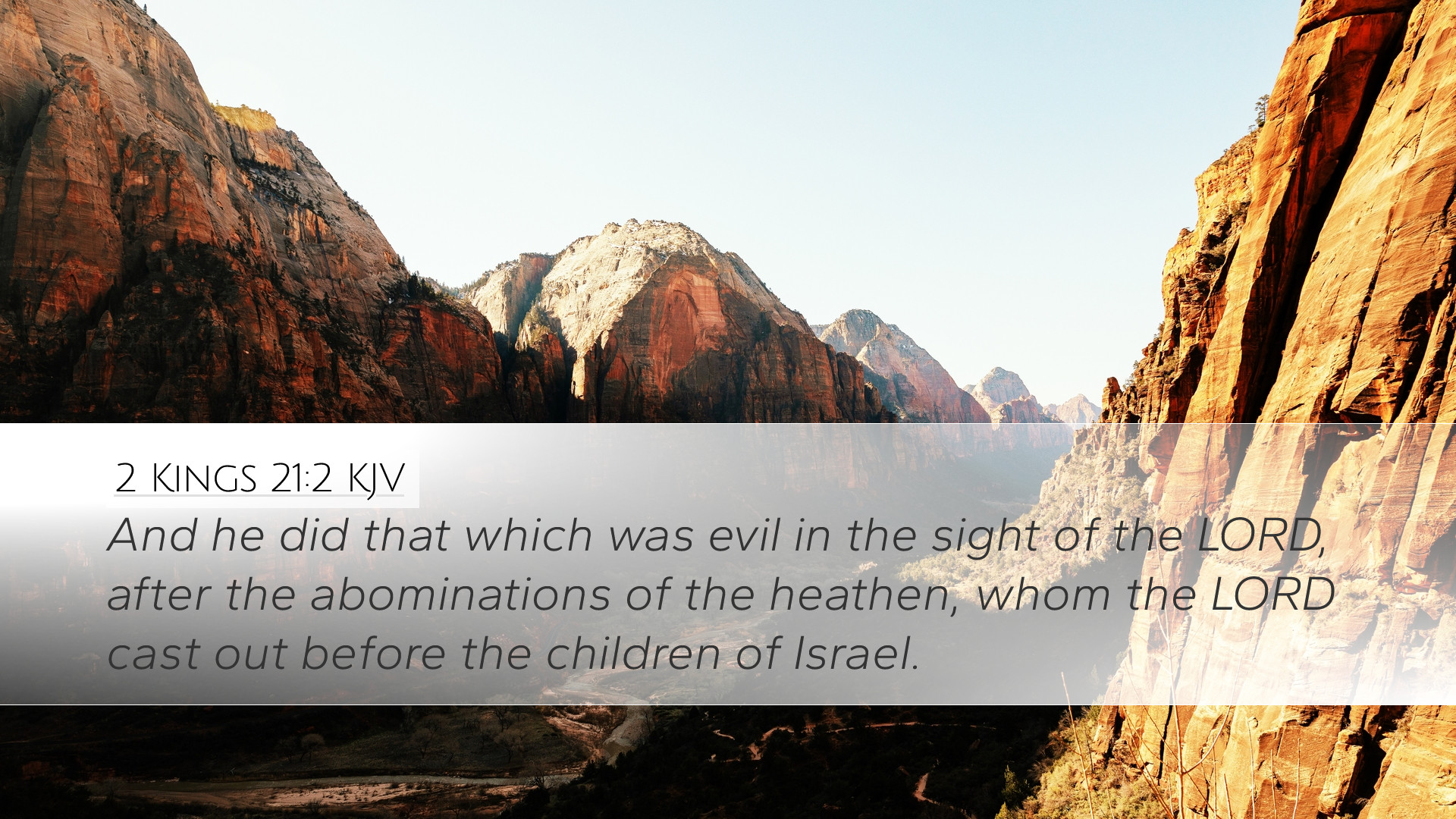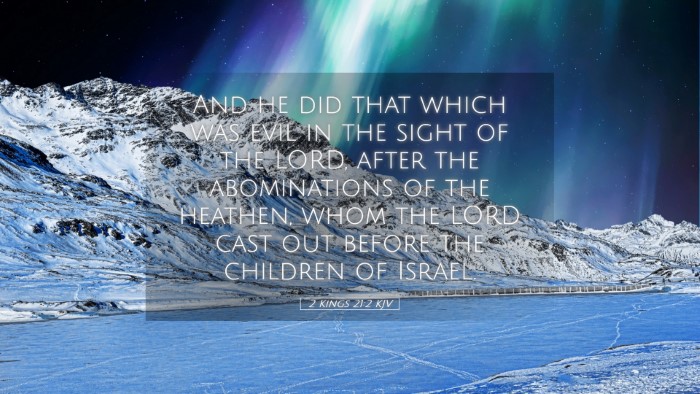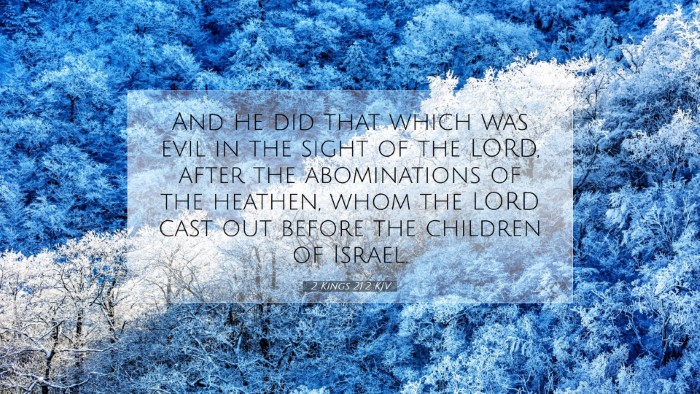Commentary on 2 Kings 21:2
Verse Reference: 2 Kings 21:2 - "And he did that which was evil in the sight of the LORD, after the abominations of the heathen, whom the LORD cast out before the children of Israel."
Introduction
The verse in question captures a significant moment in the biblical narrative concerning King Manasseh of Judah. His reign is often characterized by a profound departure from the worship and practices commanded by the Lord. This commentary synthesizes insights from several public domain sources, including Matthew Henry, Albert Barnes, and Adam Clarke, to illustrate the theological and historical implications of Manasseh's actions.
Historical Context
Manasseh, who ascended to the throne at a young age, is noted for introducing various abominable practices into Judah, which starkly contrasted the reforms initiated by his father, Hezekiah. The historical backdrop of this period informs us about the spiritual state of Israel as they faced significant internal and external challenges.
Matthew Henry's Insights
Henry emphasizes the moral and covenant-breaking nature of Manasseh's reign. He highlights that Manasseh’s behavior exemplified both a rejection of God’s commands and a willingness to embrace the very practices that led to God’s judgment on the nations before Israel.
Albert Barnes' Commentary
Barnes elaborates further on the implications of Manasseh’s actions. According to Barnes, the verse serves not only to condemn Manasseh’s choices but also to reflect God’s unyielding standards. Barnes notes that Manasseh’s actions constitute a blatant violation of the covenant, representing a perilous path that Israel would continue to tread.
Adam Clarke’s Perspective
Clarke provides a detailed analysis of the specific behaviors that constituted the abominations of the heathen. He points out that these included idol worship, the practice of occultism, and a disregard for the sanctity of life, particularly with the mention of child sacrifice, which was anathema to the Israelite faith. Clarke contextualizes these actions within the broader narrative of Judah’s downfall and God’s ensuing judgment.
Theological Implications
This verse serves as a sobering reminder of the consequences of unfaithfulness to God. It offers critical insights for contemporary readers regarding the nature of sin and rebellion against divine authority.
Consequences of Apostasy
- Moral Decay: As noted by all commentators, Manasseh's response to God is one of willful disobedience, which leads to moral decay within the nation.
- Divine Judgment: The text foreshadows the inevitable consequences that will unfold as a result of Judah's sin, notably God's judgment in the form of exile.
- Spiritual Blindness: The refusal to see the error of one's ways is a common theme in scripture, evident in Manasseh's choices.
Lessons for Today
The passage challenges modern readers to reflect on their own spiritual standings. Are there areas where we may compromise or embrace practices contrary to God’s will?
Examination of Personal Faith
Engaging these questions requires introspection and a fervent commitment to pursuing holiness amidst a culture that often celebrates moral ambiguity.
Importance of Godly Leadership
The case of Manasseh illustrates the profound influence leaders have over their communities and the necessity for godly counsel and righteousness within authority structures.
Conclusion
In summary, 2 Kings 21:2 serves as a powerful indicator of the challenges faced by the people of Judah during Manasseh's reign. The insights from Matthew Henry, Albert Barnes, and Adam Clarke collectively underline the gravity of turning away from God's commandments, the importance of leadership in spiritual matters, and the enduring relevance of this narrative in the life of the church today.


